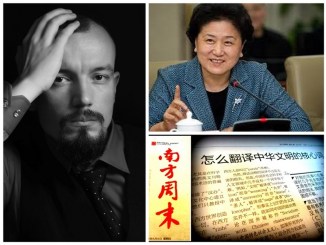
BEIJING - A revolution is underway in China, and it is unstoppable. While The New York Times, The Economist, BBC, CNN, and all Western media and scholarship still practice Orwellian rules of writing and avoid Chinese words in their China reports, a new generation of writers, scholars, and artists are not having any of it:
Whether it is shengren or junzi, baijiu or baozi, dama or taizidang –Chinese words are fashionable. There are tens of thousands of “untranslatable” Chinese key concepts out there that deserve their proper place in world history. The usual suspects like kungfu, qi, and wushu aren’t just enough for young writers. They want more.
In the past, when black people were not allowed to ride public buses in the United States, and when Asian words were shunned and censored in all writings, Western men (and few women) of letters had to improvise and “invent” translations for foreign ideas. Hence ruxue became “Confucianism”, following the Western understanding of religion: locate a messiah figure (Kong Zi) and add –ism.
Today, this form of reckless language segregation and intellectual property theft is crumbling. If we can liberate the races, we can also free their cultures. We must protect their names, words, and concepts.
China is not alone. In Japan, Shinzo Abe is promoting ‘Cool Japan’, boosting Japanese culture from genki to kawaii. Likewise, India’s Narendra Modi is supporting a revival of Hindu/Sanskrit terms around the globe.
Now Xi Jinping has discovered the secret to China’s soft power: It is Zhongguo Meng, not “Chinese Dream”. We in Beijing are at the center of this small but significant change of how people will write in the future. We are entering the post-translational society.
Thorsten J. Pattberg (PhD) is a German philosopher and cultural critic, and the author of The East-West Dichotomy and many other works on East-West relations. He can be reached at pattberg’at’pku.edu.cn.
Further reading:
- 《怎么翻译中华文明的核心词》 http://www.infzm.com/content/91278
- 《官方出品 中国传统词汇英语翻译权威版本发布》 http://edu.sina.com.cn/en/2014-12-25/111886104.shtml
- Knowledge is a Polyglot: The Future of Global Language, Big Think, http://bigthink.com/big-think-tv/knowledge-is-a-polyglot-the-future-of-global-language









